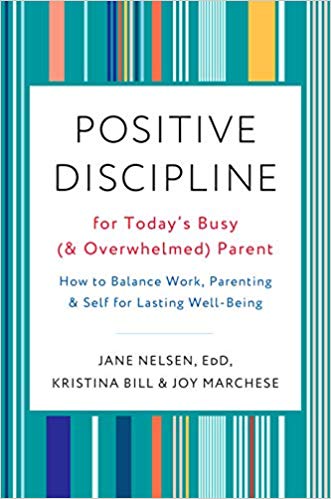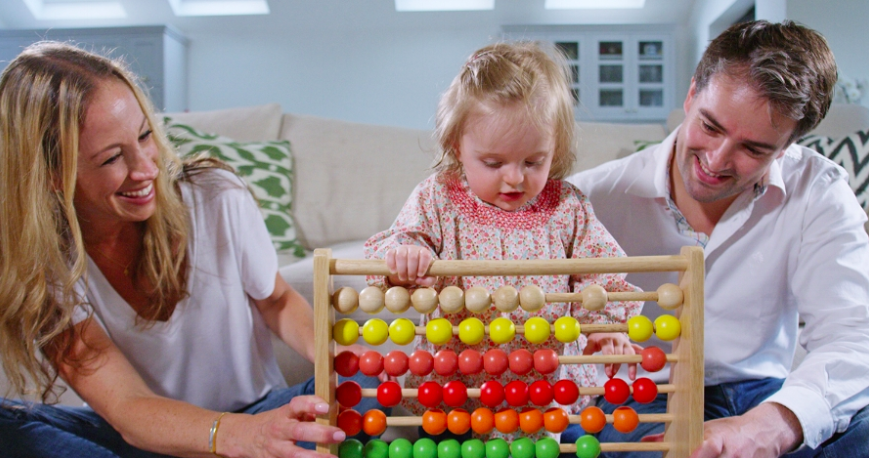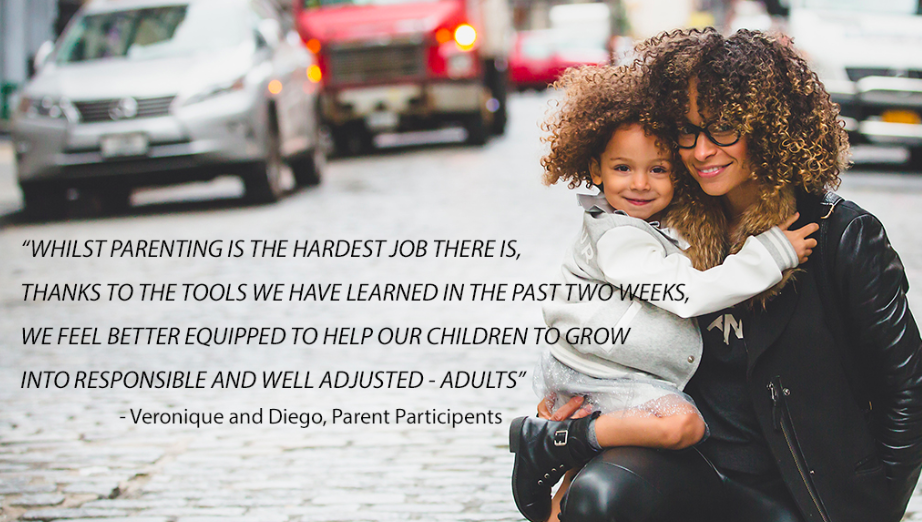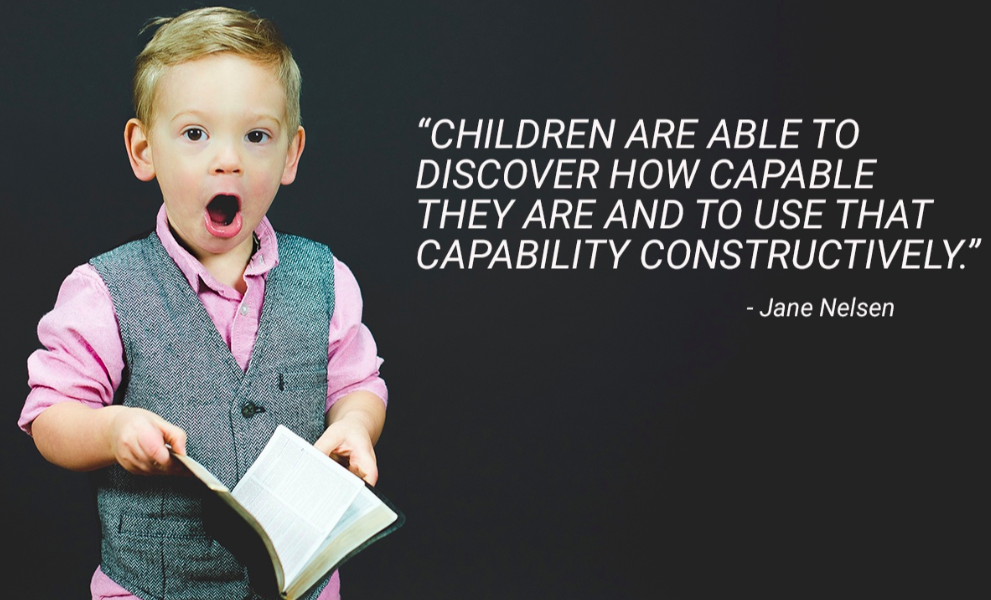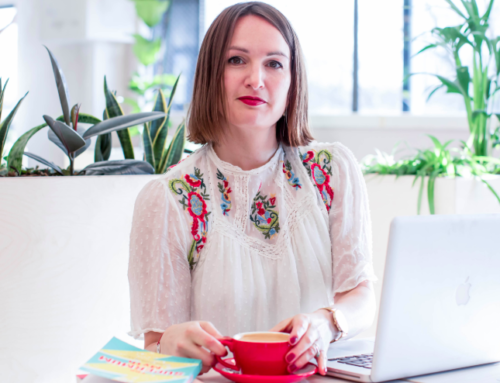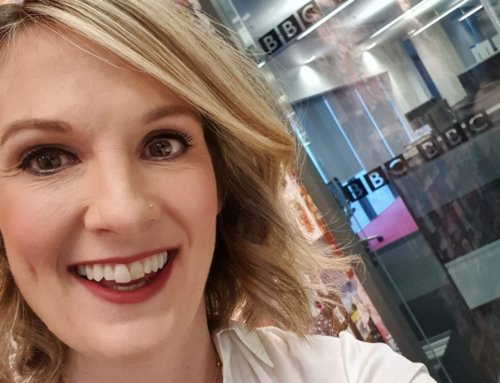On a three-month trip to Bali my daughter had a major accident resulting in two lots of surgery and her not being able to walk for over two months. In my role as a mother it was frustrating to say no to a lot, to encourage her to rest the foot as much as possible, she wanted to run before she could walk. The result was a lot of conflicts and the book Positive Discipline Parenting Tools was literally my bible to get through it, the results were incredible so I decided to train as a Positive Discipline Parent Educator with Joy Marchese founder of Positive Discipline UK and author of Positive Discipline for Today’s Busy (and Overwhelmed) Parent. The course was more than I could have dreamed and Joy is incredible as you are about to find out.
Hi Joy, Welcome to No Mum Is an Island. I am a great believer that no mum or dad should have to do everything themselves, we can’t possibly know it all, and we need all the support we can get, there is a wealth of information out there to help us upgrade our parenting experience, to make our lives easier and this website is a hub for just that! You have upgraded your life by becoming a champion for Positive Discipline sharing this incredible toolset with parents across the world in both your workshops and with your book.
Can you tell me a bit about the key philosophies of Positive Discipline?
Positive Discipline is an encouragement model. It is based on the philosophy that a misbehaving child is a discouraged child. Therefore, all of the tools are intended to be encouraging to children (and to parents). They are based on mutual respect and have been designed to increase a sense of belonging and significance, our two basic needs as human beings. To be more specific, they meet all five of the criteria for Positive Discipline that have been developed over decades of experience.
Five Criteria for Positive Discipline
- Is it respectful (kind and firm at the same time)?
- Does it help children feel belonging (connection) and significance (contribution)?
- Is it effective in the long-term?
- Does it teach valuable social and life skills for good character?
- Does it invite children to discover how capable they are and to use their power constructively?
A lot of parents seem to be worried that Positive Discipline is permissive can you explain why it is not.
Positive Discipline is kind AND firm at the same time. Kindness teaches love. Firmness teaches responsibility. Another way to say this is “Connection before Correction”. It doesn’t mean permissiveness or punishment.
Here’s an important nugget for parents, “Don’t do anything for a child that they can do for themselves.” In some instances, we do things for our children because we don’t want to see them “suffer” or we’re in a hurry and our way is more efficient, or we want things done a certain way. What we don’t realize is that the message we’re sending our children is, “you’re not capable.”
Children need to be given the opportunity to learn skills, make mistakes, and survive them. They need to stretch and grow, to learn that they are capable of acquiring new abilities and taking risks. Children need to learn the sound judgment that comes from facing problems, exploring solutions, and learning from the results.
Effective parenting means equipping children with the life skills to succeed in a challenging and difficult world. We do this by “allowing them to suffer” and to experience the discomfort of their choices while at the same time offering emotional support and helping them brainstorm for solutions. This is much more helpful to their growth and development than over- protecting and/or rescuing.
What would you say is the most powerful tool in the Positive Discipline tool kit and can you give us some/an example of it in action?
I find all the tools in the Positive Discipline tool kit to be powerful at different times. However, one of my absolute favourites and a mantra that I try to live by is “Connection Before Correction.”
Brain research has shown that children (and adults) do better when they feel better. This does not mean feeling better because they get everything they want. They feel better because they feel connected (belonging) and responsible (significant). Thus, it is very important to make a connection BEFORE you attempt a correction. One of the easiest ways to do this is to validate their feelings. Here’s an example, “I know you’re upset because you can’t have the latest smartphone, and I’m sure you can save enough money to purchase one soon.” You are connecting by showing understanding and validating their feelings, and you are giving them the opportunity to contribute (earn and save their money) instead of rescuing them and buying it for them.
With Positive Discipline I have found that by making agreements before entering scenarios that could lead to a meltdown (leaving a park, ending a playdate etc) has been life-changing. Can you explain how this may look to a parent who wants to try it out and why does it work so well?
Children feel safe and confident when they have predictable routines and know what is going to happen. Making agreements with your child in advance provides that predictability. However, the most important piece (and the biggest mistake parents make) is the follow through. This is essential! If you don’t follow through the child is learning that you don’t mean what you say and this will very quickly lead to even more pushback until they eventually get what they want.
Let’s say you made an agreement that there would be no TV during dinner. After a five-minute warning that dinner will be ready the conversation may sound like this, “What was our agreement about TV during dinner?” After a plea for “5 more minutes!” Ask, “Would you like to record the rest of it and finish watching it tomorrow or just turn it off?” If they persist and want to finish watching it now respond with “that wasn’t one of the choices. Are you going to turn it off, or shall I?” If they still don’t turn it off calmly turn off the TV without using anymore words.
What is the biggest problem that parents come to you with and what tool do you arm them with to help tackle this issue?
I can’t say there is one single problem that most parents come to me with. However, one of the most valuable tools that I use as a parent and an educator that helps with many behaviour challenges is the Mistaken Goal Chart.
When children are misbehaving, they are speaking to adults in code. A child’s behaviour is only what you see on the surface. However, hidden below the surface you can find the belief behind the behaviour, and the child’s deepest need for belonging and significance. Too often children form a “mistaken belief” about how to seek belonging and significance. For instance, a child who seeks attention may believe, “I belong only when I’m being noticed or receiving special service.” A child who displays stubbornness or defiance may believe, “I belong only when I am the boss, in control, or proving no one can boss me.” Think about it this way, a misbehaving child is a discouraged child. Our task is to help children find belonging and significance in socially useful ways by giving them power through choices, opportunities to contribute, and teaching them that mistakes are opportunities for growth.
My favourite tool that I use with my daughter to develop positive belief systems is to do daily affirmations together. This provides connection, encourages a growth mindset and builds confidence as she grows up.
Parents play a crucial role in the development of a child’s belief systems and greatly influence children’s overall well-being. Developing a growth mindset from an early age can be linked to a variety of specific developmental outcomes related to social and emotional well-being as well as academic achievement.
In your book Positive Discipline for Today’s Busy (and Overwhelmed) Parent, you champion making time for self-care, prioritizing romantic relationships with our partners and making us time. Why do you think this is so important and why do you think so many mothers find this hard?
These days there are even more parents working, and there is a lot of mum pressure do it all and to do it all perfectly. Pursuing personal and professional goals doesn’t have to mean trade-offs. They can be mutually beneficial and provide a positive way of living. However, accepting that, at times, one area of life will have to make way for another is realistic as we search for balance over time. Self-care is essential to be able to have fun juggling a busy (and sometimes overwhelming) schedule. And yes, juggling can be fun. To make sure you have the kind of energy and attitude required do one thing every day just for YOU! Meditate for 10 minutes in the morning, take a bath in the evening, do an exercise class during lunch. By doing this you are investing not only in yourself, you are investing in your family.
If people want to learn more about Positive Discipline how do you suggest they start?
There are many resources out there to learn more about Positive Discipline; books, online courses, 1:1 coaching, and my favourite live experiential classes.
You can follow Joy on Instagram at @busy_working_mum and @positivedisciplineuk respectively. For more parenting information and to buy the book go to positivediscipline.co.uk.
Joy’s new product for children, iGROWco Sprouts, 52 Positive “I am” Affirmation Cards for Kids, comes out on 1st October and is available to pre-order now.
For more parenting inspiration see below.

